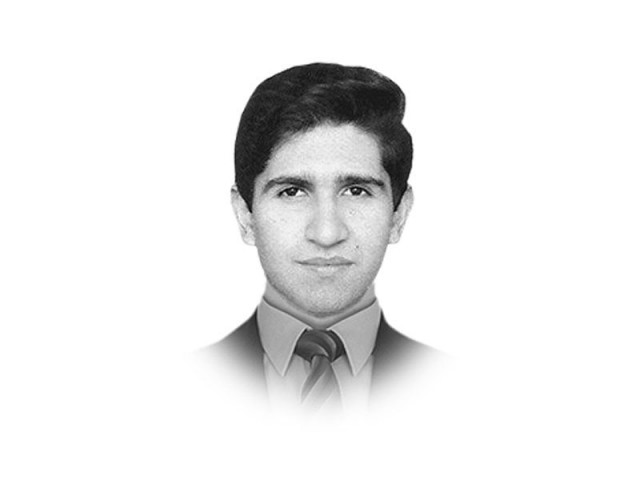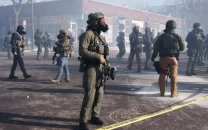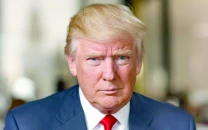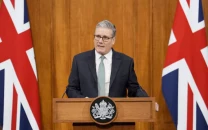Leaderships in the Muslim world
Islamic world has seen many monarchies & military dictators utilising device of elitist political Islamism for ruling.

The writer is a PhD in conflict studies and an independent security analyst who has published extensively about conflict and security. He has also taught at the University of Central Lancashire, UK
The supremacy of the leadership is a resonation of the colonial past in many Muslim post-colonial countries; since the colonising force was generally a symbiotic entity with the local elite, this elite opted for a favourable compartmentalisation of policy, as against a uniform, national political arena, which would have allowed populist politics to flourish. The unbridled power of monarchy in the Gulf states and tribal chiefs in East Africa and Nigeria, along with feudalism in Pakistan, are an expression of the spectrum of elite, which went along with the centre (a colonial power at one time) in order to negotiate as an entity on behalf of vested groups. When direct rule from the centre was preferred, as in Algeria, the system tended to break down, which espoused the cause of the elite in reaching centre stage in politics in many post-colonial Muslim nation states. As a preferred governance framework, the inherent power relationship structures within colonialism were perpetuated in continuum by this elite, till they met expressions of resentment, most notably by the Islamist movements in these countries.
Delving into the universe of Muslim leadership in the 20th century, a bewildering array of kings, military dictators, mullahs, democrats, tribal men (Taliban) emerges; adding to this motley arraignment of leadership are newly emerging, aggressively literalist Islamist movements, which are expressions of the ultra right or neo left. This has fostered the creation of leaderships that share the same characteristic of having a political agenda of survival or sustaining foisted regimes on a populace; since this is a system of governance imposed by an elite driven by political motives of sustenance of a certain regime or agenda, it can loosely be classified as elitist- political Islamism. The connotations of this type of Islamism is that due to the top-down enforced agendas — whether political or Islamist — reactionary Islamism takes root in society , much of which is due to state policies, whether as a direct or indirect consequence.
The Islamic world has seen many monarchies and military dictators utilising the device of elitist political Islamism; the Saudi regime is an example of the former while General Ziaul Haq in Pakistan symbolised the latter to the hilt. Many Muslim Middle Eastern countries, ranging from Morocco to Iran, are dictatorships, with countries such as Egypt, Iran, Libya, Tunisia, Saudi Arabia and Syria qualifying as ‘not free’ countries, even after variable experiences of the Arab Spring. Even at a cursory glance, the tribal or clannish affiliations of many leaders of these states are obvious. In Saudi Arabia and many Gulf states, the dominant clan became the ruling elite when statehood was achieved, with the masses also arrayed along tribal lineages. It is also pertinent that even when Muslim states in the Far and Middle East, such as Syria and Iraq, were taken over by military dictators, the late Hafez Assad in Syria and Saddam Hussein in Iraq, tended to repose their trust in members of their own tribes and sects. Thus, narrow principles of self-interest prevailed, which would inevitably result in a reaction.
The Islamist perception against the leadership in the Muslim world can aptly be summed up in the words of Muhammad abd-al Salam Faraaj, who was executed on charges of involvement in the assassination of former Egyptian president Anwar Sadat: “The basis of imperialism in the lands of Islam is these self-same rulers … There is no doubt that the first battlefield of the jihad is the extirpation of these infidel leaderships.” This has been more or less a dominant discourse in the Islamist world, though there are many variations to the theme. The discourse from both sides of the fence is, of course, not to be condoned. However, there is a greater need now more than ever in face of such paradigm shifts as the Arab Spring, to try and understand why such leaderships have failed in the Muslim world. Such experiments should not be repeated.
Published in The Express Tribune, January 27th, 2013.





1723611379-0/BeFunky-collage]____-(79)1723611379-0-208x130.webp)













COMMENTS
Comments are moderated and generally will be posted if they are on-topic and not abusive.
For more information, please see our Comments FAQ